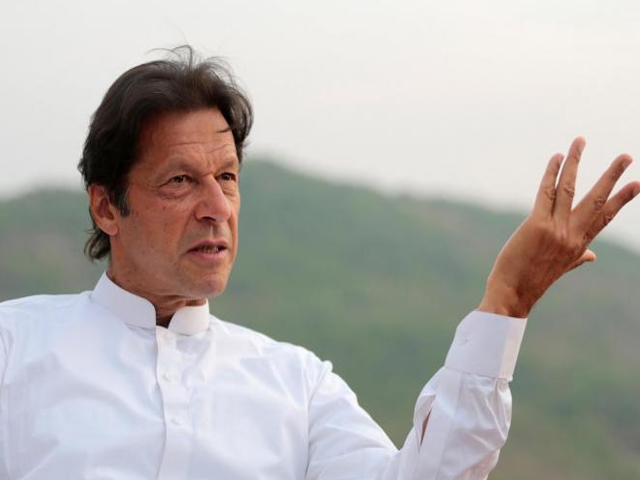
Five things teachers should never say in a classroom
Teachers in Pakistan have found a way of doing things, and when their way is challenged, they are insecure to change.
At school, I was the student that was every teacher’s worst nightmare. I questioned everything, I disobeyed flagrantly, I mimicked and ridiculed my peers but I managed to always do well in tests.
My school faced a terrible dilemma while registering me for my GCE O Levels; my disciplinary record warranted a suspension from school but they knew I would secure the grades that would enhance the school’s reputation. In the end they let me register through the school, and I repaid them for the confidence they had in me.
Ever since I left school, I have trained many teachers and worked extensively with schools to use my theatre and improvising techniques to develop confidence, communication and team-building skills.
In my experience as a student, a trainer and an observer, I have been extremely disappointed at the level of teaching in our schools. The teachers may be well versed in the subject but they are not well versed in the art of teaching. Pakistan has extremely few people who have attained degrees in education. Educators in Pakistan do not look to equip themselves with the skills required to effectively communicate ideas to their students.
Below I have listed five things which I have repeatedly heard in classrooms across Pakistan, which are completely contrary to the spirit of education. With most schools lacking the capacity or the resources to invest in teachers training, I hope this preliminary ‘what not to say’ list will serve as a guide to trainers and teachers in Pakistan to better build the future of their students.
1. Just memorise this
Most schools in Pakistan are not educational institutes, rather they are learning centres. What is tested is not your understanding of the subject but rather your ability to memorise. In 2005, I was told by my Pakistan Studies teacher that she was paid Rs2 per exam to check the exams for Matriculation in Pakistan. She told me that most teachers simply use an inch tape to measure the length of the answers and grade according to that.
If a student is simply memorising the answer, rather than developing an understanding of the subject, he/she is unlikely to retain most of the concepts. Many teachers dictate answers to numerous questions during lessons, and for the exams they simply give one of the questions that the answer was provided for during the school year.
2. Don’t question authority
The first thing our schools should impart to students is the ability of ‘critical thinking’. The masses in Pakistan have not broken out of the mentality of being the colonised subject because they are simply taught to respect authority, rather than question it.
The problem is that England has moved beyond the education system they had in place during the 19th and 20th century, but we are still emulating the approaches of the British during the era of colonisation.
Many of our hallmark institutions stand as ancient relics of the British Empire. Their strong disciplinary methods may be effective in producing grades but they are ineffective in producing free thinking individuals. Related to the inability to question any authority is the notion that questioning the author is considered blasphemy. Despite the world moving far beyond the idea of ‘author’s intent’, we are still teaching our students to begin any exposition of the text by parroting the words ‘What the author meant in this passage was...’.
Often this understanding of what the author meant actually comes from a textbook where a scholar has given his opinion on what the scholar thought the author meant. The opinion is meant to start a conversation, not end it. This scholar does not hold rights over the original intent of the author. A work of art is a conversation between the artist and the observer; by forcing a singular understanding of the author’s words onto our students, we are severely limiting their creativity.
3. Don’t talk back
We are taught that the teacher is like a parent, and we are taught that we are meant to obey a parent without even uttering a word of discontent. However, somehow, the idea of respect has been convoluted with the idea of blind following. If the word of a published expert in the field is only to be seen as the beginning of the conversation then how can the word of a teacher, on a certain subject, be accepted as gospel?
Students are routinely punished at school for questioning their teachers; teachers often rebuke these students and actively discourage their questions. People in Pakistan tend to create idols for themselves, who they can see doing no wrong. The cult of personalities and the idea of infallible human beings begin from the classroom.
In ninth grade, we had a computer-science teacher who often veered into religious doctrines on which he had little knowledge of. Without a grasp over the subject he was talking about, I wonder how many young minds were perverted by the students who thought their teacher could never be wrong.
4. You are nothing
Part of the problem is that a lot of teachers in Pakistan never wanted to be teachers. They came to be teachers due to some unfortunate incident in their lives or failure to secure a job in their fields – resulting in a lot of disgruntled teachers. These teachers often take out their frustrations on students.
Children are meant to be nurtured rather than discouraged. When a child acts out, it may be due to a multitude of reasons. It may be a call to attention, or a sign of trouble at home. Rather than the teacher acting or lending a helping hand to the student, teachers often engage in a verbal, or worse physical fight with the student.
I have been kicked out of classes being told I would never amount to anything in my life. I have been told by teachers that I am destined to be a failure. I have been told that I was not raised right by my parents. I have had my work ripped into pieces by teachers in front of my face.
Once I fought with a student during assembly and the principal of the school came to my class while I was not there and told all the students to not talk to me. For the entire day I was ignored by every single person in class till I went home and my friend called me to tell me what the principal had told the class to do.
Thankfully I had a strong support system at home to guide me through my troubles at school but as a trainer I have worked with numerous students who contemplate suicide; some have even attempted to run away from homes or drop out of school just because of the discouragement they receive at school.
Teachers are meant to build students, not knock them down – which brings me to the worst thing that teachers can say to their students.
5. “No”
It seems like such an innocuous thing to say. It is a single most powerful syllable that destroys dreams and dreamers. The entire culture of negativity surrounding many classrooms in Pakistan begins with this single cursed word.
Pakistan does not lack high quality professionals, we have enough people excelling in their fields but we lack philosophers. We lack people capable of creative thinking; people capable of thinking outside the box. Part of the reason is that when these people try to express themselves creatively, they are met with a stern “no.”
Teachers in Pakistan have found a set way of doing things their way, and when their way is challenged, they are too insecure to change.
This fear of change leads them to an absolute rejection of new ideas. They do not grow as individuals, and they do not let their students grow as individuals.
The first thing I try to do as part of teacher training is to develop a culture of “yes and...” Not only do you accept the idea but you add to it, you build upon it. This way every single person has the ability to contribute to the idea and a spirit of community is developed in the classroom.
It is about time teachers in Pakistan start treating their classes as spaces where conversations are started and ideas are created. They have as much to learn, as they have to teach.




COMMENTS (10)
Comments are moderated and generally will be posted if they are on-topic and not abusive.
For more information, please see our Comments FAQ